Malaysia is in urgent need! More than 3 people were confirmed to close the factory for 14 days, ST and Infineon had to suspend production.
According to Bloomberg, with the outbreak of new crown pneumonia (Covid-19) in Malaysia out of control, the number of confirmed cases is rising rapidly, with more than 20,000 new confirmed cases of new crown pneumonia per day, leading the local government to continue the suspension of production of epidemic prevention measures. STMicroelectronics and Infineon will have to suspend production at some local factories, which will also exacerbate the global shortage of semiconductor chips.
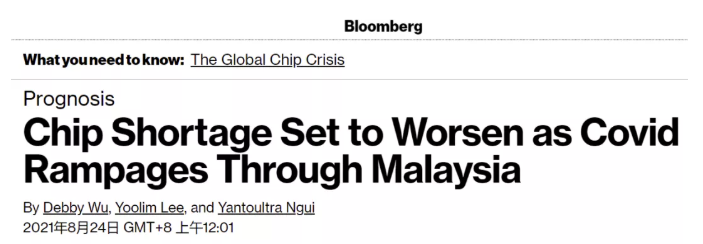
01
Malaysia Outbreak Shocks Sealed Production Capacity
Since May this year, the Malaysian government has introduced a strict comprehensive prohibition order to control the new crown epidemic and implemented a nationwide blockade. Due to the unfavorable control of the epidemic, the subsequent national blockade that was originally scheduled to end on June 28 was extended indefinitely, which also led to the closure of many local factories. Malaysian factories are also only allowed to continue to operate with 60% employees. Only when more than 80% of employees are fully vaccinated can they resume to 100% employee operations.
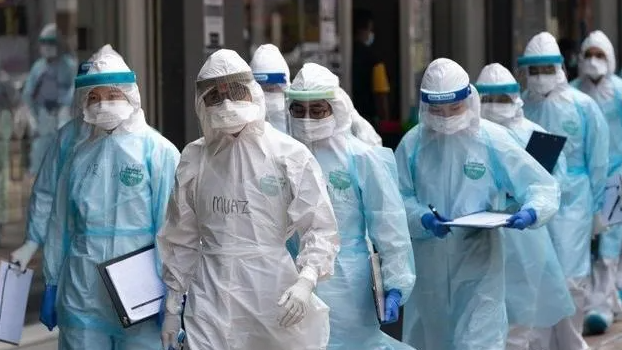
However, as the local new crown epidemic is still increasing recently, Malaysia has begun to implement more stringent epidemic prevention measures.the Malaysian government requires that the factory production line can only maintain a low-level manpower operation of 10%-20%, the production line will be reduced, and some factories will be closed once infection occurs.
In addition, according to the current unofficial guidelines of Malaysia,If more than 3 workers are diagnosed with infection, the factory must be completely shut down for 14 days.. The move will be a serious blow to many local semiconductor sealing and testing plants.
Malaysia is one of the most important semiconductor export markets in Southeast Asia and even Asia, second only to China, Japan, South Korea, Singapore and Taiwan. At the same time, it is also one of the major centers of global sealing and testing,Southeast Asia has a market share of 27% in the world, of which Malaysia has half.According to statistics, Malaysia currently has more than 50 semiconductor companies, most of which are multinational companies, such as AMD, Freescale Semiconductor, Infineon, STMicroelectronics, Intel, Renesas, Texas Instruments, etc.
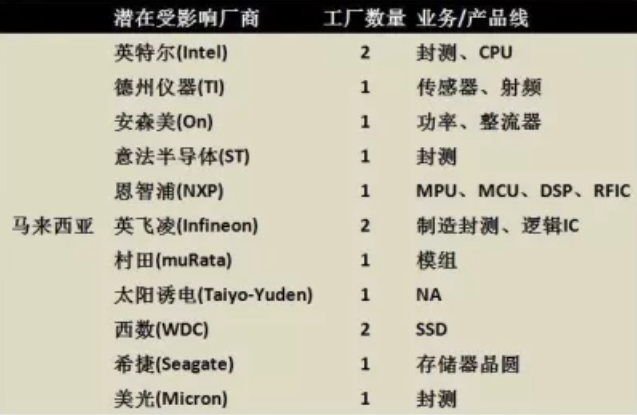
sealing is a key part of semiconductor manufacturing, and global chip supply tensions will continue as regulatory actions continue in Southeast Asia and the situation is further severe. Mainland China, as one of the most effective areas for epidemic control, has a large amount of sealing capacity and is expected to benefit from the transfer of overseas orders.
packaging and testing, wafer foundry and other industries, the passive component companies that have set up factories in Malaysia also include Huaxinke, Wangquan, as well as Nissho Murata, Aluminum Power Plant Nichicon, Nippon Chemicon, and Solid State Capacitor Plant Panasonic. At present, it is the traditional peak season of electronics, but also the peak demand for passive components, which may make the supply more tight and push up the passive components.
02
STMicroelectronics and Infineon had to close their factories.
data show that,stmicroelectronics has a large back-end testing plant in Muar, Malaysia, with up to 4000 employees,about 30% of the sealing capacity of STMicroelectronics depends on this factory..
worth noting that on August 17, Dr. Xu Daquan, executive vice president of Bosch (China) Investment Co., Ltd., disclosed through the circle of friends that stmicroelectronics's Muar (Muar) factory in Malaysia was once again requested by the local government to close some production lines until August 21 due to the epidemic. This will cause Bosch ESP/IPB, VCU, TCU and other chips to be directly affected,It is estimated that the supply is basically cut off in August..
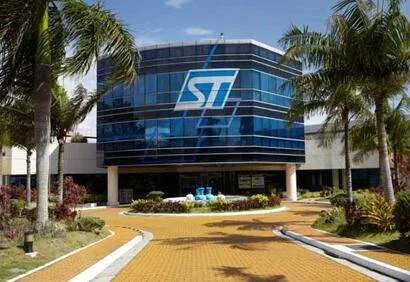
However, stmicroelectronics then responded through WeChat public number that a department of its Muar factory was isolated on August 16 and restarted operation on August 18.stmicroelectronics, sacrificed more than 20 employees and infected hundreds of people due to the disease.
Infineon also has a rear section sealing and testing factory in Melaka, Malaysia. The factory covers an area of 123500 square meters and has up to 8000 employees. It is Infineon's largest rear section sealing and testing factory. Its main products are power semiconductors and MCU. There is also a wafer manufacturing and testing plant in Kulim, Malaysia.
in mid-June this year, Infineon also issued a notice to customers that Infineon's production in Malaysia had been greatly affected by the re-outbreak of the global new crown epidemic and the Malaysian government's "comprehensive action control order.

at Infineon's earnings conference call in August this year, Infineon also said that the bottleneck of manufacturing in Malaysia may continue to drag down sales in the third quarter. Infineon CEO Reinhard Ploss said,shutdown reached "high double digits" millions of euros., but Infineon expects its Malaysian plant to operate at normal capacity later this month.
According to Bloomberg, Samuel Tan, a semiconductor analyst at the Kenanga investment bank, believes that this may be very destructive to Infineon and other closed testing plants with thousands of employees.local companies are reporting such closures through the exchange, and two key auto suppliers, STMicroelectronics and Infineon, have to close local production facilities.
In addition to STMicroelectronics and Infineon, NXP, Renesas Electronics, Texas Instruments, Ansenmei, Anshi Semiconductor and other major automotive chip factories also have factories in Malaysia, if the Malaysian epidemic continues to get out of control, then will undoubtedly hit the global automotive industry.
03
Global Supply of Automotive Chips Tight Again
recently, Nissan Motor Company and General Motors both warned that the shortage of spare parts was increasing due to Malaysia's blockade. Nissan also closed its production line at its plant in Smyrna, Tennessee, for two weeks in August.
Toyota said last week that it would suspend production at 14 factories because major suppliers, especially Southeast Asian suppliers such as Thailand, Vietnam and Malaysia, were attacked by Delta variant virus. In addition to the soaring diagnosis rate in Malaysia, Thailand and Vietnam are also increasing rapidly.
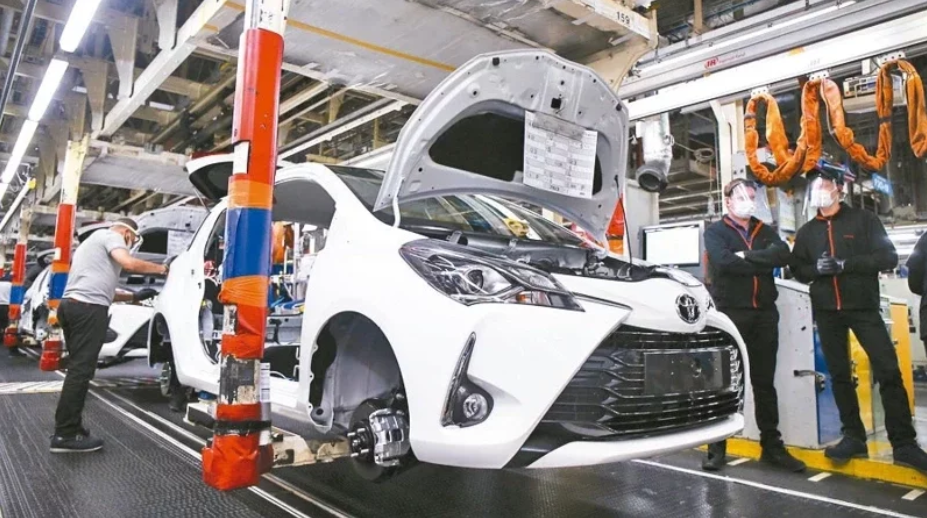
According to Auto Forecast Solutions, as of August 9, the global production reduction due to core shortage has reached5.85 millioncars. The number of 21Q1 and Q2 global light vehicle production reduced due to the impact of the chip supply chain is estimated to be 1.44 million and 2.6 million respectively, and the number of 21Q3 affected is estimated to be at least 1.6 million, with the actual shortage likely to be between 1.8 million and 2.1 million.
tight sealing capacity will impact the downstream market, especially the automotive market.IHS Markit estimates, 2021 years of global light vehicle production will reach80.78 millionvehicles, up 8.3% from 2020, with annual production estimates ranging from 6.3 million7.1 millioncars.
IHS Markit expects the tight supply of automotive chips to slow down in Q2 2022, while Intel and Infineon believe that the shortage of automotive chips will continue until the end of 2022.


